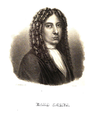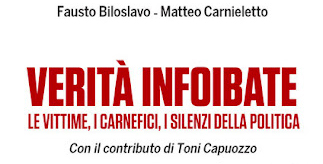Professione: Orator, lexicographer and crowned poet
Luogo: Dalmatia
Autore: Ildebrando Tacconi; S.P.Novak
Nec sapio Illyriam, sed vivo et tota latina majestate loquor” said Elio Lampridio Cerva from Ragusa (Dubrovnik), born in 1460. Cerva’s life, one the most erudite poet of his time, was stormy and restless, characterized by a strong intolerance towards the impure contacts and the barbarian manners he’s been surrounded by. He felt Latin more mother language than slavic, so he lived all his life in a violent struggle against the “barbaric” neighbouring countries. His linguistic and social griefs found relief in his elegies where he wrote about the regret of the times when in Ragusa (Dubrovnik) Latin was the only language, or about the wish of not hearing the resonance of that “stribiligo illyrica, scittica lingua che infetta”. His passionate and intense mood took shape in the fiery verse (in the opinion of some critics, the best he has written), in a tone more or less explicit, of the erotic elegies of Flavia’s cycle, dedicated not only to the luxurious and shameless homonymous Roman woman but also to the Ragusan matron of Bona family. The intolerance of his nature towards every kind of oppression, in addition to the one showed in his verse, left some traces also in the official proceedings of the Municipality: he had indeed a public confrontation with his mother-in-law, for this reason he had to spend Christmas Holidays in prison (later described in a Elegy of a convicted man). About him we also know that when he was thirteen he went to Rome, following his uncle Stephen,ambassador of the curia of Pope Sixtus IV: here he had a goliardic life, he discovered his poetic attitude that made him accepted in Pomponio Leto’s circle, for this reason he deserved the laurel wreath and he was crowned in Campidoglio. Here he studied the classical dramatic composition and completed a work about Plautus comedies. He finished the “Lexicon” (1480), a large-sized (33x23cm) encyclopedic dictionary written in Latin, composed of 429 pages. When he went back to Ragusa, “creature of Rome”, during 1490s, he began to teach at school and like his predecessor, he was spokesman of the Republic of Ragusa (Dubrovnik). At last, perhaps forced by the circumstances, he withdrew in solitude on the beautiful Ombla island, where he lived until 1521, when he died. Despite the title of poet, given to him in the official documents, Cerva published only four short pieces. His primary work De Epidauro remained unfinished: it’s an epic poem about the Turkish invasions of the Ragusan territory. Latin poems of various subject – about family, religion and love- characterised by lively references either to other contemporary essays or his hot nature ( in certain poems he describes like Renaissance assaults some romantic abuse that shouldn’t be completely unrelated to him) are collected in two codes kept in the Vatican Library. Anyway the works of one of the greatest Ragusan humanist, whose literary work considerably surpasses that of his contemporaries and fellow citizens.
Reading path.
“Then, oh Jupiter, would you like to deprive the Illyric coast of its Roman settlers? What’s my crime? Should I pay the abuse of Shiite’s inhospitable barbarism? Now I am completely Roman; I haven’t the odour of Illyria, but I live and I speak with every Latin majesty. Please, distance from me those blasphemous hands; drive away every barbarian…..
 Language
Language Italian
Italian

